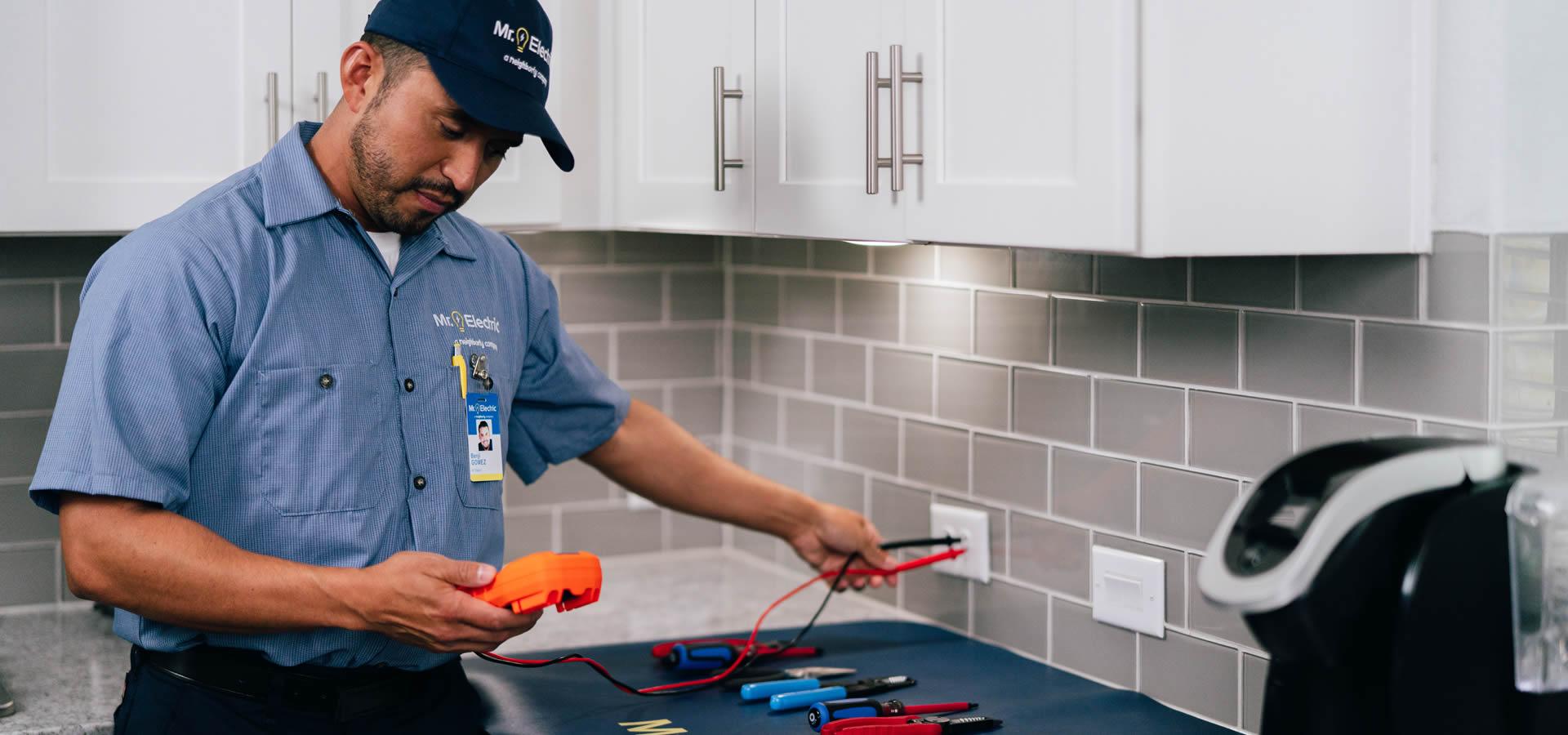Lights can flicker for various reasons, including faulty fixtures, loose bulbs, or issues with the electrical wiring. If the problem persists, it's best to consult an electrician to fix the underlying issue.
- Home
- Electrical Services
- Appliance Circuit Installation
- Ceiling Fan Installation
- Commercial Service
- Electric Vehicle Charger Installation
- Electrical Contractor
- Electrical Inspection
- Electrical Outlet Replacement
- Electrical Panel Replacement
- Electrical Repair
- Electrical Wiring
- Home Automation System Installation
- Smoke Detector Installation
- Surge Protection Installation
- Lighting
- Blog
- Reviews
- Coupons
- Contact Us
- Service Areas
- Career
- About Us
- FAQs
- Locations
- Videos
Call this Wednesday to Get
$25 OFFCall this Wednesday to Get
$35 OFFHire Local Trusted Electricians Now
Need an Electirician?
SCHEDULE SERVICE NOW!Call Us Today!
346-666-5002- Home
- Electrical Services
- Appliance Circuit Installation
- Ceiling Fan Installation
- Commercial Service
- Electric Vehicle Charger Installation
- Electrical Contractor
- Electrical Inspection
- Electrical Outlet Replacement
- Electrical Panel Replacement
- Electrical Repair
- Electrical Wiring
- Home Automation System Installation
- Smoke Detector Installation
- Surge Protection Installation
- Lighting
- Blog
- Reviews
- Coupons
- Service Areas
- Career
- About Us
- FAQs
- Locations
- Videos
- Contact Us



